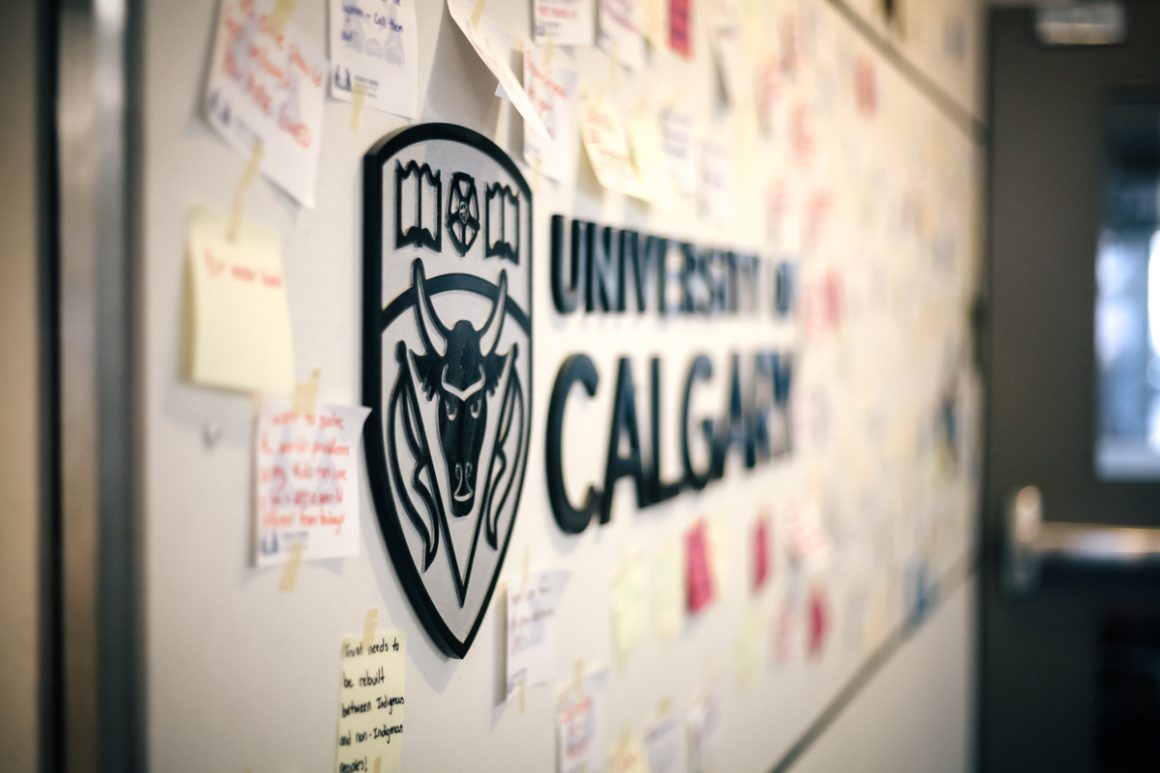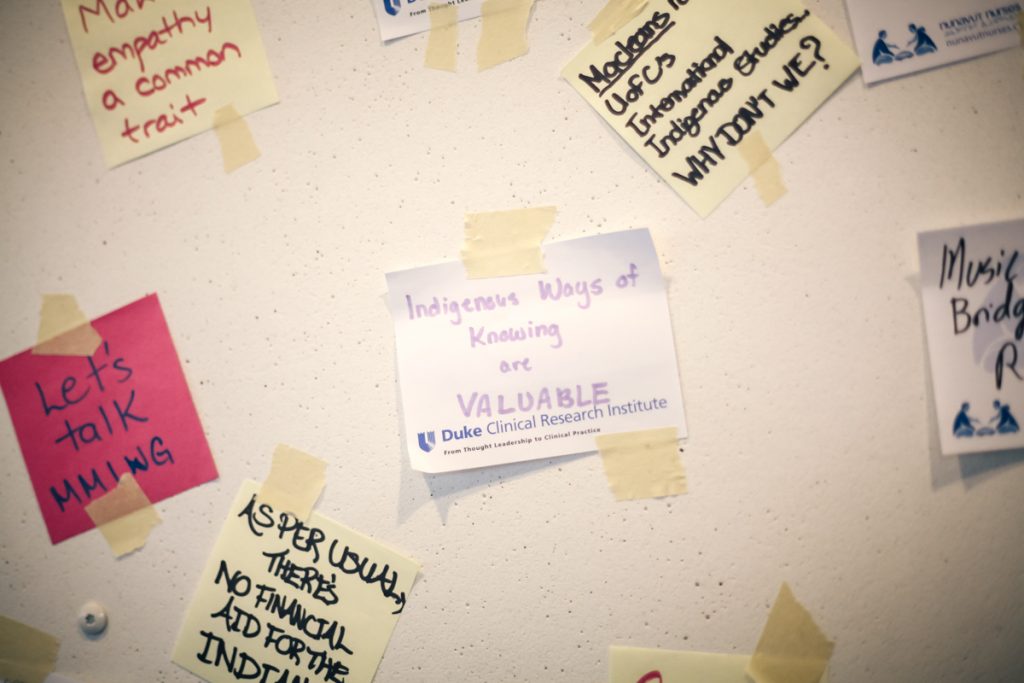
U of C class makes statement on issues facing Indigenous peoples with display outside administrators’ office
By Jason Herring, February 15 2019 —
“Trust needs to be rebuilt between Indigenous and non-Indigenous peoples”
“As per usual, there’s no financial aid for the Indians”
“Indigenous lives matter!”
These three statements are among dozens that were written on sticky notes and posted beside the main entrance to the University of Calgary executive offices in the Administration building on Feb. 14.
The notes, written and placed by students in ANTH 310: Contemporary Indigenous Issues in Canada, are the result of a classroom exercise coordinated by instructor and U of C assistant professor Jennifer Leason. The notes are meant to shine a light on issues faced by Indigenous people in Canada.
“In class we were having a discussion today about Missing and Murdered Indigenous Women, just talking about the injustices that the Indigenous communities in Canada face,” said fourth-year women’s studies student Spencer Belanger, who was among students posting the notes. “Our professor suggested that we each write down at least 10 issues that we think are important.”
According to Belanger, the class collectively agreed to post their notes outside administrators’ offices as a political statement.
“People can see and read it and stop and think of ways that they can start thinking about Indigenous issues in Canada and how they affect us all,” he said. “These conversations are already happening among the higher-ups of the campus but they’re conversations that are important to bring to the wider community.”

The U of C introduced their Indigenous Strategy, ii’ taa’ poh’ to’ p, in November 2017. The school says the strategy is meant to examine the relationships that exist within the school between Indigenous and non-Indigenous peoples and how to make those relationships more respectful and equitable.
“We’ve been active in trying to address some of these matters raised through the Truth and Reconciliation Commission report, as well as even before that,” said U of C vice-provost Indigenous engagement Michael Hart. “There’s recognition that these issues have been longstanding so the university has stood up to say, ‘Look, we have to do a better job.’ And we’ve spent time developing a relationship with communities and First Nations communities, trying to hear from them what their perspectives are on what they’re doing, things we need to improve on.”
Hart said he was appreciated seeing the display, saying it helps continue the campus-wide dialogue surrounding Indigenous issues.
“I think it’s a great reminder for all of us. I think it’s important that we get to hear from the students in such ways as this. I’m glad that they presented it here, so that it’s reaching people in leadership positions here at the university,” he said. “I appreciate that it’s here and that they’ve voiced their thoughts in this way. I think it helps us keep on track in terms of things that we’re doing. It’s another means of hearing community voice.”
One initiative Belanger argued that the U of C could commit to is making one Indigenous Studies course mandatory for Faculty of Arts students. A handful of universities have a similar requirement for students, particularly at the University of Winnipeg, where all undergraduate students must meet an Indigenous course requirement.
“Having something that can be foundational in promoting more inclusivity on campus and more understanding and more solidarity among Indigenous students on campus I think would be such a fantastic thing,” Belanger said.
The U of C has looked at how to better incorporate education about Indigenous peoples and their histories into students’ degrees, according to Hart, who said that any decisions would be made by individual faculties but that’s he’s keen to see those discussions continue.
At the end of the day, Hart says he wants members of the campus community to recognize that everyone has a role to play in reconciliation.
“It’s important for all of us to recognize that in order to create significant and ongoing change, everyone’s part of this,” he said. “We all have to look at how we’ve contributed — hindered, supported or otherwise — to the relationships we have. We all have learning to do and we all have to come to a deeper level of understanding. It’s a commitment that everyone in our society needs to make because once we create these changes, everyone’s going to end up benefiting from them.”
